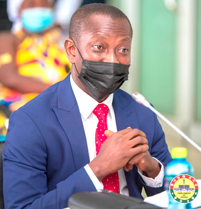The Deputy Minister-designate for Office of the Attorney General and Justice, Alfred Tuah-Yeboah, has said the state should uphold the existing procedure used to determine compensations for persons established to have been ‘wronged’ by the state.
Whereas there are cases where compensation determined for an applicant can be perceived as unreasonable, it must be noted that resource constraints are a key determinant in the awarding of damages, he stated.
To this end, he opined that the current process wherein judges use their discretion in determining how much one should be paid should be maintained – until such a time that the state would like to pursue legislation to revise it.
Appearing before the Appointment Committee of Parliament, he explained that: “The current practice in Ghana has been that when you go to court for compensation, it is at the discretion of the judge. As the applicant or plaintiff in such a case, you must demonstrate that you are entitled to a reasonable sum as compensation.
“But reading Article 14, of the 1992 Constitution of the Republic of Ghana, it appears it is rather the courts which have to satisfy the Supreme Court before there will be an assessment as to how much that person should be paid.”
The position of Mr. Tuah-Yeboah follows a question asked by a member of the Committee, Francis-Xavier Kojo Sosu, on whether legislation ought to be put in place to determine the compensation unit for a person unlawfully arrested or detained, in reference to Article 14 subsection 7.
He argued that there seems to be no particular way or inconsistency in the manner used to calculate the compensation unit of a person unlawfully arrested, restricted or detained – citing a number of cases to buttress this assertion. The Deputy Minister-designate for Office of the Attorney General and Justice, while undergoing the vetting process, also discussed a number of issues related to judgement debts among others.










